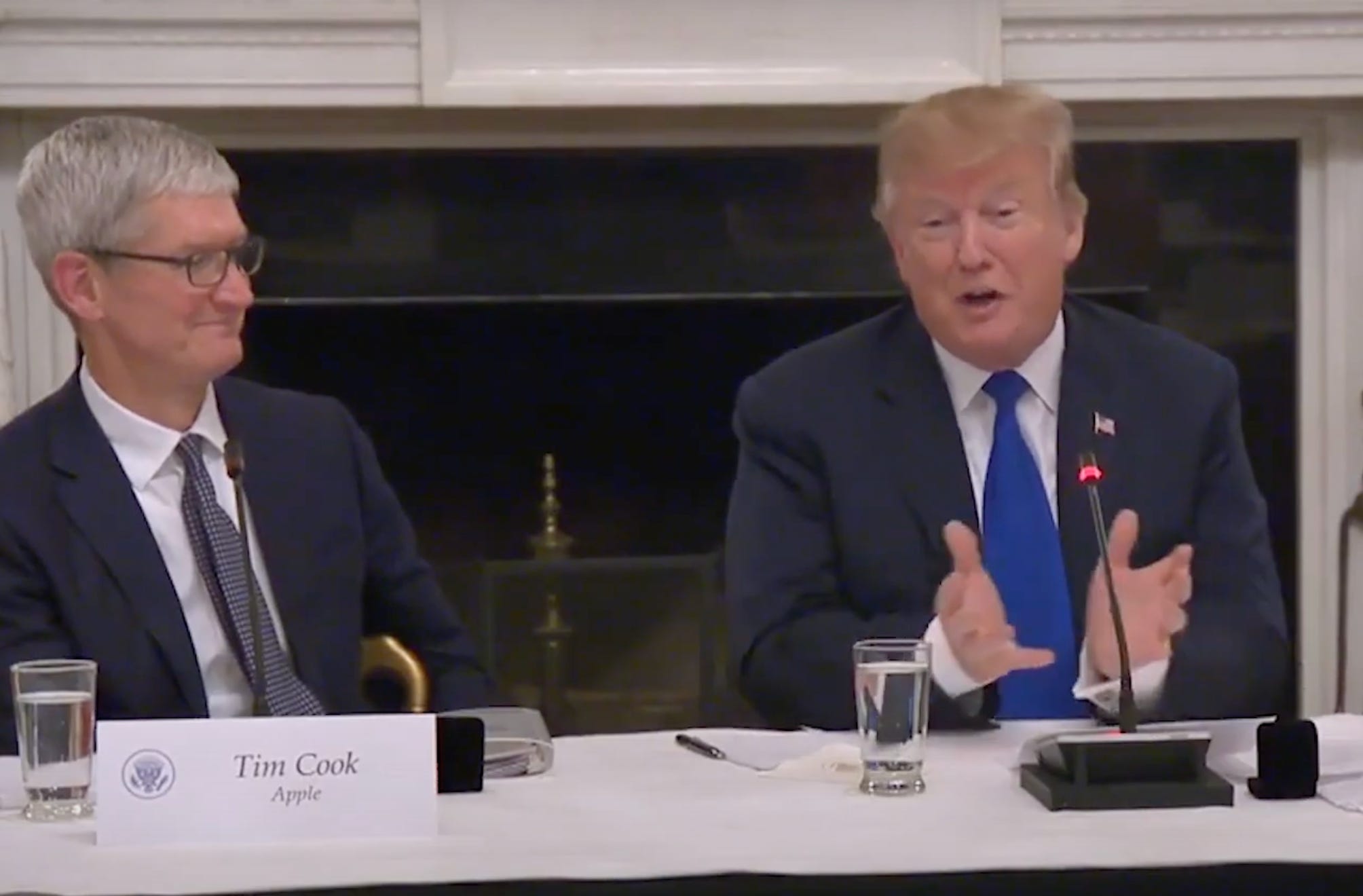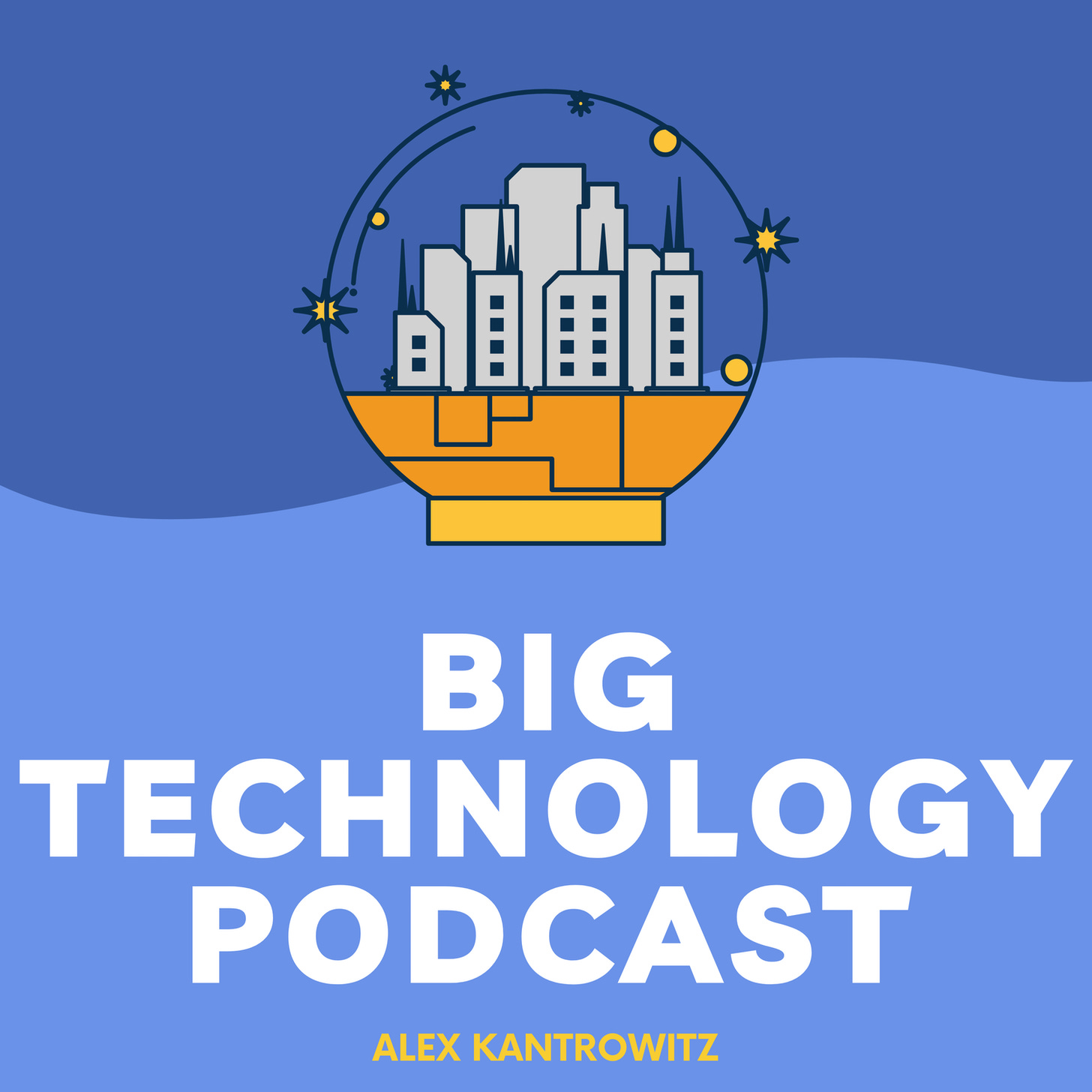|
Join hundreds of tech and business leaders who subscribe to Big Technology’s premium edition for added reporting and to support independent journalism:
Trade War? Tariffs? How A Trump Election Would Change Tech
Breaking down how Trump might impact Apple, semiconductors, and ecommerce should he be elected and implement the tariffs he’s proposed.
The tech industry is dependent on global trade. Semiconductors, phones, and items in ecommerce shops typically cross borders before reaching their destinations. And when the global supply chain is mostly functional, it keeps inflation down, boosting a stock market that’s delivered outsized gains for big tech.
But this system’s stability is now uncertain with the U.S. presidential election approaching next week. Both candidates are more protectionist than the free trade consensus that’s held for the past two decades. But Donald Trump is on another level. The former President could “radically remake world trade,” the WSJ recently said, with tariffs of 20% on all imports, and potentially 60% on imports from China.
“Tariff,” Trump said last month, “is the most beautiful word in the dictionary. More beautiful than love, more beautiful than respect.”
Should Trump win, global trade will likely become tech’s top issue, a policy matter unlike the social media manipulation stories that followed previous elections. Here’s a realistic picture of what might unfold after the election, based on interviews with trade experts studying the policies:
Apple
Apple is the U.S. tech company most interlinked with China, with 20% of its revenue and critical manufacturing capabilities based in the country. Apple avoided meaningful damage from Trump’s tariffs during his term thanks to exemptions and exclusions for products like the iPhone, iPad, MacBook and Apple Watch. But this time, everything appears to be on the table.
“The transitions are likely to be quite severe,” said Warwick Mckibbin, an economics professor and co-author of a recent study on Trump’s proposals by the non-partisan Peterson Institute for International Economics. “Take an Apple iPhone, for example. That’s being assembled in different places and going through multiple processes, it’s going to be very disruptive in the short term. In a long-term, it's going to mean higher costs.”
Such near-term concerns could hit Apple stock fairly quickly, Hightower Advisors’ chief investment strategist Stephanie Link told me on Big Technology Podcast last week. “The initial knee-jerk reaction will be sell Apple,” she said.
But Apple has a powerful lobbying arm, and Tim Cook himself has successfully convinced Trump to exempt Apple in the past, so there’s a chance it could strike a deal again. “The targeting of tariffs isn't always principled,” Ajay Mehrotra, professor at Northwestern Pritzker School of Law, told me. “Tax policy and international trade policy are susceptible to lobbying.”
Finally, Trump often uses threats of tariffs as a negotiating tactic, working to cajole companies to manufacture in the U.S. or face import duties. He may well attempt to get Apple to relocate more of its supply chain to U.S. in exchange for more exemptions.
Semiconductors
The U.S. relies on Taiwan for semiconductors — the critical component in most electronics — and it’s already planning to double its 25% tariff on semis to 50% by 2025. That tariff hike is a Biden administration plan, so Kamala Harris and Trump might not differ much on this issue, a rare area of common ground.
“On a bipartisan basis, there has been a focus on semiconductors, on U.S. access, on U.S. production,” Greta Peisch, the former general counsel for the U.S. trade ambassador under Biden, and currently a trade attorney at Wiley Rein, told me. “You would probably see some consistency.”
For semiconductors, the fear is a trade war spills over with unintended consequences, making it harder for U.S. companies to get the component. But all actors have incentives to keep the situation from going nuclear, Peisch said.
Ecommerce
Companies like Amazon depend on goods made in China, and Chinese upstarts Shein and Temu have made inroads worldwide. In the U.S. the latter two are using a ‘de minimis’ exemption in trade law that allows directly-mailed goods to come in tax free if they’re less than $800 per person, per day. The Biden administration has pushed to close this loophole in some areas, and Trump would almost certainly attack it should he take office again.
“My hunch is that the path towards closing the exemption has been taken,” Amit Khandelwal, professor of global affairs and economics at Yale University, told me. “And my hunch is that if a Democratic administration comes, we will just follow down that path. If a Republican administration comes, I guess the elimination of that part of de minimus exemption that they've done already would be the baseline. And there would be discussions to do more”
Should the loophole close, Shein and Temu will likely see broad price increases, and this has already played out to some degree outside the U.S. “In Europe, it's already a 20% tax and there's no de minimis,” Chad Schofield, co-founder & chief digital officer at logistics company BoxC, told me. “Of course, no one wants to pay extra tax, but it's not a death blow.”
Trump, who attempted to ban TikTik as President, may decide tarrifs are not enough and attempt to ban Shein and Temu. Certainly, Amazon, which has come under some threat from these companies, wouldn’t mind.
Conclusion
Many economists I speak with are enthusiastically pro-free trade while those in government seem warmer to protectionism. It makes some sense. While globalized trade has grown the broader pie, it’s also left many back. And tariffs — along with the threat threats of tariffs — are seen as one way to mitigate the downsides. There are, however, various potential secondary consequences to such moves, and they’re not guaranteed to work. If the election goes Trump’s way next week though, the tech industry is going to be thrust right in the middle of this conversation.
Get product-led certified today (sponsor)
Companies that put their product at the center of their business grow more efficiently, reduce customer churn, increase productivity, and innovate faster.
Becoming product led is a journey, but it can all start with you. Sign up for Pendo and Mind the Product’s Product-led Certification Course to deepen your understanding of product-led strategies and how to apply them at your organization.
Advertise on Big Technology?
Reach 150,000+ plugged-in tech readers with your company’s latest campaign, product, or thought leadership. To learn more, write alex@bigtechnology.com or reply to this email.
What Else I’m Reading, Etc.
Detailed report on Intel’s struggles under CEO Pat Gelsinger [Reuters]
Meta is training its Llama 4 model on 100,000 NVIDIA H100 GPUs [Wired]
OpenAI’s transcription tool makes things up in medical settings [AP]
Waymo hits 150,000 weekly rides, up from 100,000 in August [Clean Technica]
Elon Musk says a Trump election could lead to ‘Temporary Hardship’ for economy [New York Times]
Big Technology is partnering with ElevenLabs to create audio versions of this newsletter with AI voices [Alex Kantrowitz]
The Real Feel Unveils First Month of Sentiment Data, Showing Americans’ Moods Hold Steady with Election Day Around the Corner [AP] (sponsor)
Number of The Week
250,000
Number of Washington Post cancellations after Jeff Bezos blocked its Kamala Harris endorsement right before publication.
Quote of The Week
“More than a quarter of all new code at Google is generated by AI, then reviewed and accepted by engineers.”
Google CEO Sundar Pichai giving an update on the company’s AI efforts during earnings this week.
Letter of The Week
Here’s longtime Microsoft executive and Big Technology reader Robbie Bach responding to our story about Bezos killing endorsements at the Washington Post:
I will just challenge you that I think that killing editorial endorsements is an awful idea.
I understand his point that the media is viewed as biased. But that is not because of Presidential endorsements (or any other endorsements). It is because leaders, podcasters, celebrities, etc. in the country spend their days (and nights) yelling at people telling them that the media is biased. Stepping away from endorsing candidates or ideas, or issues will not change this.
Furthermore, if you thought the Editorial page was the problem, you should get rid of the whole concept rather than just political endorsements. People don’t trust journalists because they are being told (virtually every day) that the reporting is biased. This is largely a social media and a societal problem, not a function of the editorial page (or even most actual reporting). We’ve allowed “facts” to be a moving target that everyone gets to define for themselves. This makes the editorial page more important, not less. All that is to say that at best his logic is either flawed or his gesture is pyric.
This Week on Big Technology Podcast: Today on Big Technology Podcast: The Next Gen AI Models: Reliable, Consistent, Trustworthy — With Aidan Gomez
Aidan Gomez is the co-author of the "Attention Is All You Need" paper that launched the AI revolution and CEO of Cohere, an enterprise AI company. Gomez joins Big Technology to discuss the myths, facts, and realities of today's AI landscape. Tune in to hear why the real value of AI isn't in flashy consumer apps but in automating crucial back-office processes that could save businesses billions. We also cover the truth about AI capabilities, the likelihood of AGI, synthetic data training, and whether an intelligence explosion is possible. Hit play for a refreshingly grounded discussion about where AI is actually making an impact, from one of the field's pioneering voices.
You can listen on Apple, Spotify, or wherever you get your podcasts.
Thanks again for reading. Please share Big Technology if you like it!
And hit that Like Button
My book Always Day One digs into the tech giants’ inner workings, focusing on automation and culture. I’d be thrilled if you’d give it a read. You can find it here.
Questions? News tips? Email me by responding to this email, or by writing alex@bigtechnology.com Or find me on Signal at 516-695-8680
Thank you for reading Big Technology! Paid subscribers get our weekly column, breaking news insights from a panel of experts, monthly stories from Amazon vet Kristi Coulter, and plenty more. Please consider signing up here.



